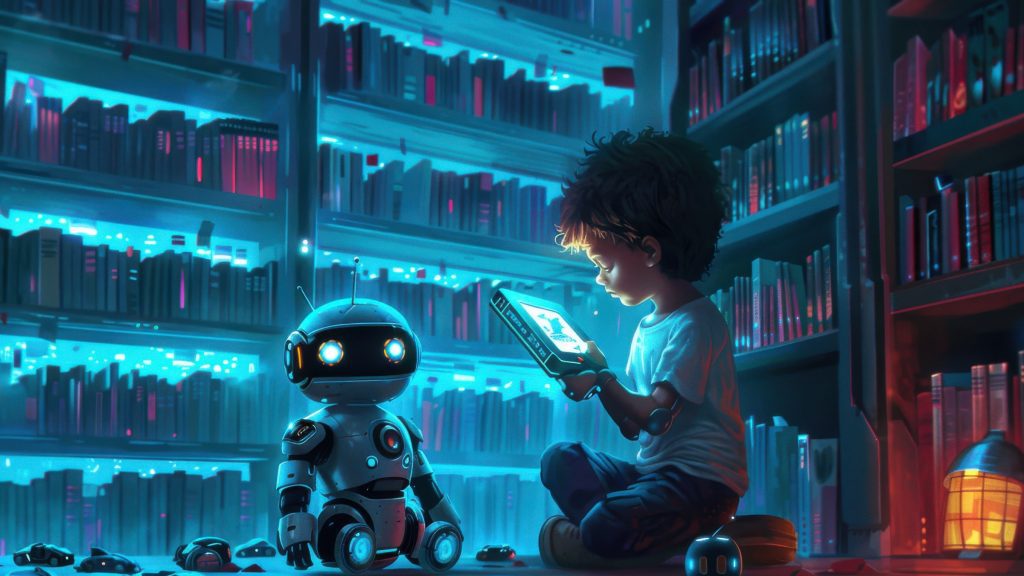
Should Students Use AI? The question has been controversial on American college campuses since 2022, when releases of ChatGPT and other tools that assists students began to change the schooling experience.
When schools began facing problems around AI tools for students and their cheating endeavors, many turned to old blue book essays, and while some hope AI will disappear from classrooms after this crackdown, the true probability is that it will remain a core aspect of learning, reshaping the way children work and think.
Teachers are struggling with how AI is harming scholars as they seek to avoid real work. Many are trying to learn how to use these new technologies for good. Back to school blue books can help reduce the use of cheating AI tool for exams but also reflects a deeper issue: How to merge AI activity for students with education for real understanding.
AI Activities for High School Students
High Schools across the US are experiencing different AI activities for students that go beyond simple shortcuts. Instead of banning AI altogether, some instructors are teaching to use these tools as part of brainstorming, research tasks, or other types of projects.
However, a serious concern is AI affecting students negatively by birthing a deep-rooted dependence on quick solutions instead of developing their own ideas. Therefore, because of excessive use of cheating tools, schools have restored in-class, hand-written blue book essays.
The tests make it harder for brainstorming students with AI during exams and force them to think critically without any external help.
“the process of writing a paper outside of class cannot simply be replicated in a blue book exam, and something serious is lost if we give up entirely on the traditional essay, whether those essays are more analytic, argumentative, or research-based,” said Philip D. Bunn, a Covenant College assistant professor.
Logistics for How AI Helps Scholars Succeed
AI tools made for students can promote personalized learning by helping students research, offering instant feedback, and helping in generating new ideas. AI brainstorming students use, for example, can come up with new ways of drafting more analytical and argumentative essays.
So, the question on how should students use AI in education, in an accountable manner, is still under process. Schools are testing AI-detection software, but these will typically not catch some cases of misuse. Meanwhile, a survey indicate that nearly 89% of college students have admitted to employing ChatGPT for coursework, proving how rooted AI is in education.
This is a testament that rather than just fighting AI through restrictions, teachers may have to show students how to use these technologies responsibly. This way, academic integrity can be maintained while AI and students’ critical thinking can emerge as a natural part of innovation.
Final Thoughts
The breakdown on cheating tools has sparked a return to traditional education methods, but AI is unlikely to disappear from school systems anytime soon. Instead, AI will continue transforming how students learn and think, pushing teaching to integrate technology responsibly in new ways.
The real challenge lies in balancing AI’s benefits with its risks, helping students use AI for brainstorming and growth without letting it weaken their critical thinking. Should students use AI? Eventually, the future of education depends on teaching students not just whether they should use AI, but how to use it well.
Inside Telecom provides you with an extensive list of content covering all aspects of the tech industry. Keep an eye on our Tech sections to stay informed and up-to-date with our daily articles.